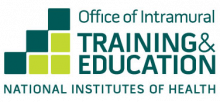
Becoming a Resilient Scientist
Unit 1: An Introduction to Resilience and Wellness
- Webinar Date: Tuesday, January 26
- Time: 11:00 am to 1:00 pm
- Register here to watch webinar live or to receive a recording.
- Small Group Discussion Date: Monday, February 1
- Time: 3:00 pm to 4:00 pm
Unit 2: Exploring our Self-Talk: Cognitive Distortions and Imposter Fears
We tell ourselves stories about what is happening to us and around us. In this webinar, we will explore how our self-talk is generated and look at ways our self-talk can either help us be more resilient or how it can hurt us and hold us back. We will look at two important elements of our self-talk, cognitive distortions, and imposter fears, and explore ways to recognize internal messages and input from others that distort our views of our abilities and accomplishments.
- Webinar Date: Monday, February 15
- Time: 11:00 am to 1:00 pm
- Register here to watch webinar live or to receive a recording.
- Small Group Discussion Date: Monday, February 22
- Time: 3:00 pm to 4:00 pm
Unit 3: Emotions and Emotional Intelligence in the Workplace
Emotions can play a critical role in how we communicate, navigate relationships, and manage conflict. In this webinar, we will discuss Emotional Intelligence and emotions and how they influence our resilience as scientists.
- Webinar Date: Monday, March 8
- Time: 11:00 am to 1:00 pm
- Register here to watch webinar live or to receive a recording.
- Small Group Discussion Date: Monday, March 15
- Time: 3:00 pm to 4:00 pm
Unit 4: Self-Advocacy and Assertiveness for Scientists
We all need to develop the skills needed to be assertive and to advocate for ourselves, especially in hierarchical environments where we sometimes feel we do not have a voice. In this webinar, we will discuss how to set boundaries, communicate expectations, ask for feedback, and discuss difficult issues with friends, mentors, colleagues, and supervisors.
- Webinar Date: Tuesday, March 30
- Time: 11:00 am to 1:00 pm
- Register here to watch webinar live or to receive a recording.
- Small Group Discussion Date: Monday, April 5
- Time: 3:00 pm to 4:00 pm
Unit 5: Developing Feedback Resilience
We all need feedback to grow and learn but we often become defensive and are unable to learn from the feedback we receive, even if it is delivered well. In this webinar, we will talk about why receiving feedback is so difficult and explore ways to stay calm and engaged when receiving feedback. We will also talk about giving feedback in a calm and assertive way so that our voice can be heard.
- Webinar Date: Tuesday, April 20
- Time: 11:00 am to 1:00 pm
- Register here to watch webinar live or to receive a recording.
- Small Group Discussion Date: Monday, April 26
- Time: 3:00 pm to 4:00 pm
Unit 6: Managing Up to Maximize Mentoring Relationships
We all need mentors to support and encourage us throughout our educational and career journey. In this webinar, we will talk about the mentoring relationship in research environments with a focus on improving your relationship with your PI, finding mentors, and improving communication and interpersonal interactions. The webinar will help clarify what you need from your supervisors and mentors and address how to get what you need from these important interactions.
- Webinar Date: Monday, May 10
- Time: 11:00 am to 1:00 pm
- Register here to watch webinar live or to receive a recording.
- Small Group Discussion Date: Monday, May 17
- Time: 3:00 pm to 4:00 pm